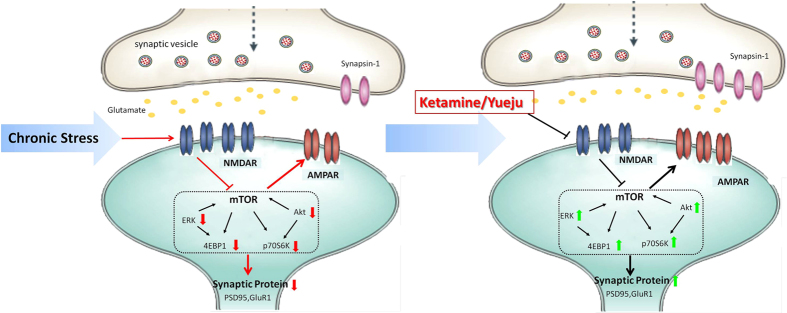Figure 6. A working model of the effects of fast-acting antidepressants on mTOR related activity and AMPA/NMDA receptor expressions in the PFC of a rodent model of depression.

Chronic stress promotes NMDAR activities that mediate synaptic loss. Up-regulated NMDAR activities decrease Akt and ERK signaling, which in turn suppresses activities of mTOR downstream effectors p70S6K and 4E-BP1, leading to decreased synaptogenesis and dendrite atrophy, including decreased AMPAR activities. Consequently, the ratio of AMPA/NMDA receptor function decreases, contributing to depression-like behaviors. Yueju and ketamine attenuate the up-regulated NMDAR expressions and/or inhibit NMDA neurotransmission in chronically stressed subjects. The substantially reduced NMDA activities improve the Akt and ERK signaling and downstream signaling of p70S6K and 4E-BP1, leading to increased synaptogenesis and AMPAR activities. Therefore, the ratio of AMPA/NMDA receptor function increases, contributing to rapid antidepressant effects in depression-like subjects. The diagram was drawn by Juanjuan Tang according to the present experiment.
